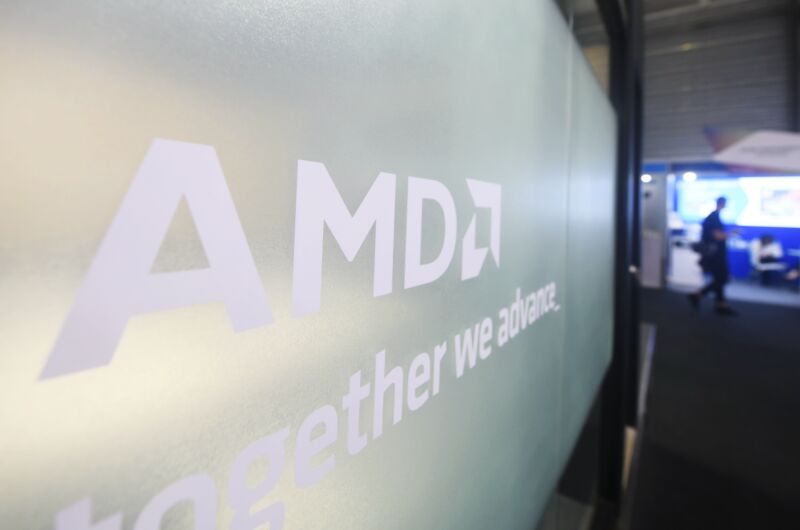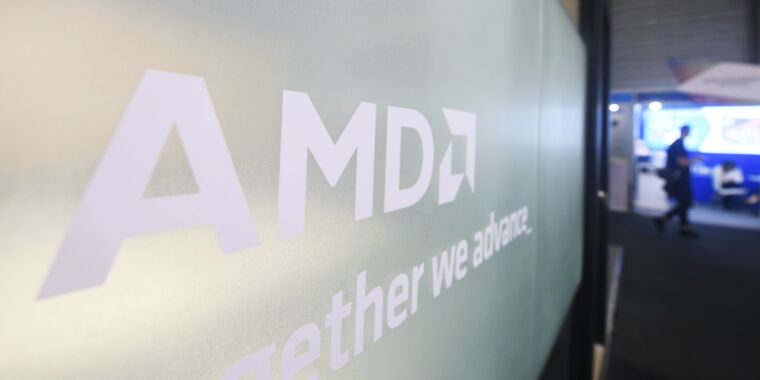
AMD has agreed to acquire artificial intelligence infrastructure company ZT Systems in a $4.9 billion cash and stock transaction, continuing its streak of AI investments as it battles market leader Nvidia.
The California-based group said the acquisition would accelerate adoption of its Instinct line of AI data center chips, which compete with Nvidia's popular graphics processing units (GPUs).
ZT Systems, a privately held company founded three decades ago, builds custom computing infrastructure for the largest AI “hyperscalers.” While the company doesn’t disclose its customers, hyperscalers include Microsoft, Meta and Amazon.
The deal is AMD's largest acquisition since it bought Xilinx for $35 billion in 2022.
“It brings a thousand world-class design engineers to our team, enables us to develop silicon and systems in parallel and, more importantly, get the latest AI infrastructure operational in data centers as quickly as possible,” AMD CEO Lisa Su told the Financial Times.
“It really helps us implement our technology much faster because this is what our customers tell us [they need]”, Su added.
The transaction is expected to close in the first half of 2025, subject to regulatory approvals, at which point New Jersey-based ZT Systems will join AMD’s data center business group. The $4.9 billion valuation includes up to $400 million subject to “certain post-closing milestones.”
Citi and Latham & Watkins are advising AMD, while ZT Systems has hired Goldman Sachs and Paul Weiss.
The move comes as AMD looks to break Nvidia’s stranglehold on the AI data center chip market. Earlier this year, Nvidia briefly became the world’s most valuable company as big tech companies poured billions of dollars into chips to train and deploy powerful new AI models.
Part of Nvidia's success stems from its “systems” approach to the AI chip market, with the company offering an end-to-end computing infrastructure with pre-programmed server racks, networking equipment and software tools to make it easier for developers to build AI applications on its chips.
AMD's acquisition shows the chipmaker is expanding its own “systems” offerings. The company rolled out its MI300 line of AI chips last year and says it will launch its next-generation MI350 chip in 2025 to compete with Nvidia's new Blackwell line of GPUs.
In May, Microsoft became one of the first AI hyperscalers to adopt the MI300, building it into its Azure cloud platform to run AI models like OpenAI’s GPT-4. AMD’s quarterly revenue from the chips surpassed $1 billion for the first time in the three months ended June 30.
But while AMD bills the MI300 as its fastest product launch ever, data center revenue still represented a fraction of the $22.6 billion Nvidia's data center division brought in in the quarter to the end of April.
In March, ZT Systems announced a partnership with Nvidia to build custom AI infrastructure using its Blackwell chips. “I think we definitely believe that ZT as part of AMD will significantly accelerate the adoption of AMD AI solutions,” Su said, but “we have customer promises and we will definitely deliver on them.”
Su added that she expects regulators to focus primarily on the US and Europe in their assessment of the deal.
In addition to increasing research and development spending, AMD says it has invested more than $1 billion in the past year to expand its AI hardware and software ecosystem.
In July, the company announced it was acquiring Finnish AI startup Silo AI for $665 million, the largest acquisition of a private AI startup in Europe in a decade.
© 2024 The Financial Times Ltd. All rights reserved. Do not copy and paste FT articles, distribute them by email or post them on the web.

